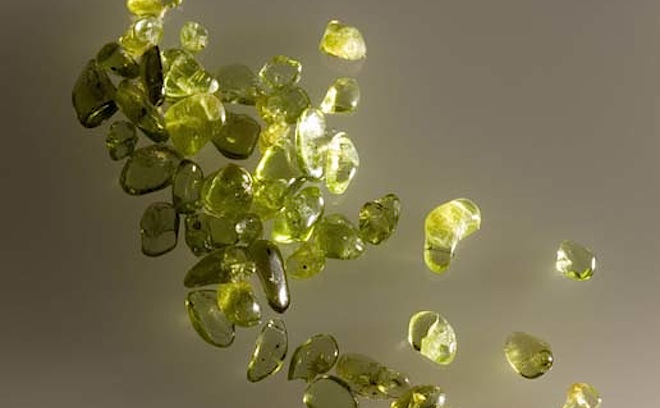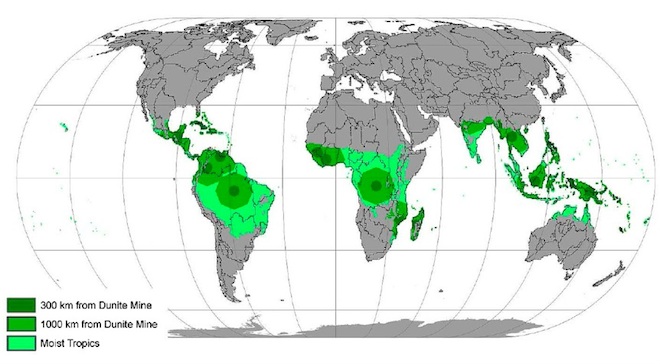
Tefnut's Environmental and Drought News Article

By Brandon Keim November 11, 2010 | 12:07 pm | Categories: Environment, Geology

Scattering the dust of a common, semiprecious metal across equatorial soils may sponge carbon dioxide from the atmosphere and slow the pace of climate change.
The essence of the process is familiar: When water, CO2 and silica-containing rocks mix, the resulting chemical reactions produce minerals that contain carbon, known as carbonates. These are found in groundwater, responsible in part for making it "hard" and clogging pipes with residue.
When water drains to the sea, carbonates are carried along and buried in its depths, along with the carbon they carry. And since olivine, a silicate, is among the world's most common minerals, some researchers have wondered whether it may be put to carbon-sucking use.
"We know this is already happening. The question is, how much can we dissolve without disturbing the natural environment?" said geochemist Jens Hartmann of Germany's University of Hamburg, lead author of the study published Nov. 9 in the Proceedings of the National Academy of Sciences.

Hartmann's team calculated how much carbon might be absorbed by olivine mined from equatorial deposits, ground to a fine powder and scattered across the Amazon and Congo river basins.
According to their estimates, olivine powdering could, if done every year over most of those regions, theoretically lower atmospheric CO2 levels by 80 to 150 parts per million by the century's end.
Barring radical changes in fossil fuel consumption, global CO2 levels are expected to reach about 700 ppm by that time; about 350 ppm is considered safe, or at least non-catastrophic. Olivine alone wouldn't keep CO2 under control, but Hartmann said it could be "one of dozens of geoengineering methods that can contribute to CO2 management."
Of course, real-world application of olivine would be difficult. Actual efficiency would likely be lower; applying it would require cooperation from millions of individual farmers and landowners, ultimately covering only portions of equatorial soils.
Beyond logistics, there would be safety concerns. Adding carbonate to water changes its acidity, and altering the chemistry of the Amazon and Congo river basins is troubling to imagine.
Concerns about the unintended effects of other geoengineering proposals recently prompted 193 nations to suggest a ban on large-scale projects and tight controls on research.
Hartmann said it's far too soon to consider industrial-scale olivine powdering, but he would like to see small-scale tests designed to give a better understanding of its dynamics and consequences.
"We need research. My personal opinion is that we should be very careful doing these things," he said. But given the amount of CO2 pollution already taking place, "we already do geoengineering now."
Image: 1) NASA 2) Distance of equatorial locales from deposits of dunite, an olivine-rich rock./PNAS.
Brandon's Twitter stream, reportorial outtakes and citizen-funded White Nose Syndrome story; Wired Science on Twitter.
Source: Wired News
© 2010-2026 Bill McNulty All Rights Reserved